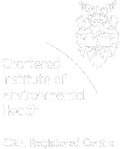Professional/Short course Introduction to Global Public Health
15 credit level 7 module
About
In this 15 credit module, Introduction to Global Public Health, you will explore how population health and well-being are influenced by a range of global factors and social determinants, including sustainability and the environment, food systems, security, globalisation and human migration.
On successful completion of this level 7 (Masters level) module, you will be able to access, synthesise, critically analyse and apply knowledge and understanding of:
- the range of factors that impact global health and wellbeing
- the contribution of different academic disciplines to the study of global public health and wellbeing
- the human, social and ethical context of global public health and how this is relevant to understanding inequality, social injustice and rights-based public health
Careers / Further study
This module can contribute towards the PGCert Health and Social Care, MSc Clinical Practice, and the Professional Development Awards. If you have any queries, please contact the Professional Development team (pd@uwe.ac.uk).
This module contributes towards the MSc Public Health.
How to apply
Please click on the Apply Now button to apply for your CPD module, which you can take as a stand-alone course or as part of an undergraduate or postgraduate (Masters level) programme.
Please read our Terms and Conditions.
Extra information
If the course you are applying for is fully online or blended learning, please note that you are expected to provide your own headsets/microphones.
For further information
- Email: pd@uwe.ac.uk
- Telephone: +44 (0)117 32 81158
Structure
Content
The course syllabus typically includes:
- Philosophical and theoretical perspectives on health, illness and public health, including epistemological and ontological arguments and social theories of subjectivity/objectivity, induction/deduction, structure, agency, human nature and modernity.
- Philosophical perspectives on community and society: community organisation; group and organisational theory; political ideology (individualism, collectivism, communitarianism, market capitalism, etc).
- Political and ethical values in public health: e.g. beneficence, equity, social justice, altruism, interdependence, social responsibility, harm principle, freedom, risk, etc.
- Contributions of primary academic disciplines to public health, specifically sociology, ecology, psychology, education, political science, economics and biomedicine.
- Historical and geographic trends and developments: evolution of the public health field; rise and prominence of biomedicine; national and international political developments (including WHO); global public health trends.
- Determinants of health and illness: national and international trends; cultural, social, environmental and political contexts; key health drivers.
- Inequalities in health, healthcare, opportunity and social status: social justice; rights and freedoms; local, national and international classification and social stratification (occupation, income, ethnicity, race, culture, religion, generation, age, gender, sexuality, opportunity and ability); political and ethical debates on inequality.
Learning and Teaching
The module takes a multi-disciplinary approach, providing contributions across the health and social sciences to explore the nature and complexity of public health in a global context. The module is taught through a combination of lectures and interactive seminars, discussion and group activity.
Independent learning includes hours engaged with essential reading, workshop preparation, assignment preparation and completion.
Assessment
You will undertake one item of coursework comprising a 3,000 word essay.
Formative assessment involves small group workshops scheduled during the module that include small group seminar activities designed to enable you to interact, apply and exchange knowledge.
Prices and dates
Supplementary fee information
Please visit full fee information to see the three easy price brackets for our modules.
Dates
Please click on the Apply Now button to view dates.
Features
Study facilities
The College of Health, Science and Society has an excellent reputation for the quality of its teaching and the facilities it provides.
Take a personalised virtual tour of the Health Professions facilities and experience what a typical day could look like here for you.
If the course you are applying for is fully online or blended learning, please note that you are expected to provide your own headsets/microphones.
